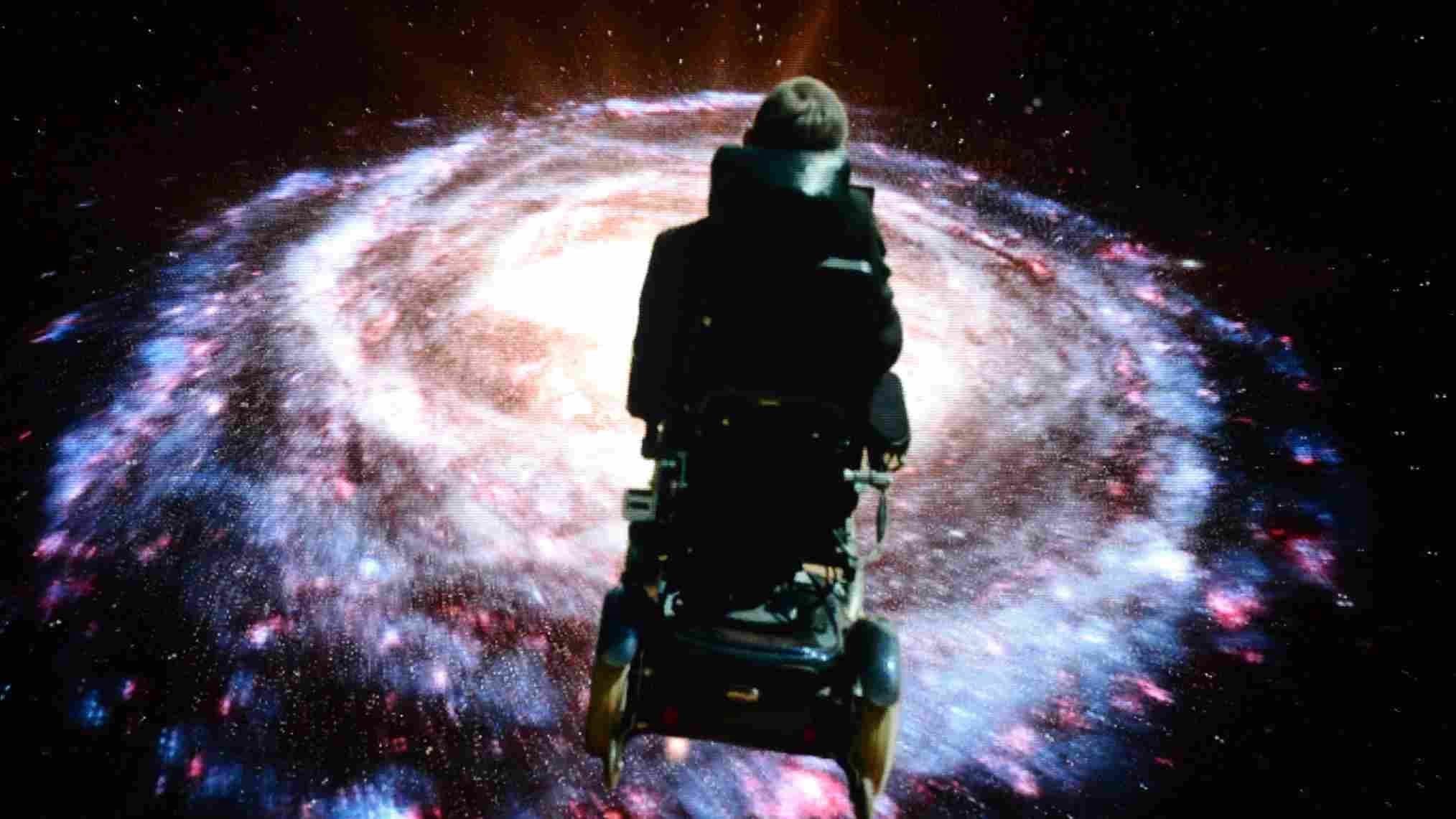
Tech & Sci
23:03, 15-Mar-2018
Hawking's Chinese connection: Loved China and loved by China
By Guo Meiping, Gao Yun

The news of legendary physicist Stephen Hawking's death broke Wednesday morning.
The British physicist, who has died at the age of 76, was a towering figure in the modern history of physics. He authored several science best-sellers, including "A Brief History of Time," despite becoming wheelchair-bound a few years after being diagnosed with a motor neuron disease in 1963.
The whole world is mourning the genius, including China, where the visionary scientist had paid three visits and enjoyed a lofty status.
Hawking’s three trips in China

April 28, 1985, was Hawking’s first visit to China. His first destination was the University of Science and Technology of China, located in Hefei, capital of east China’s Anhui Province, where the then 43-year-old physicist delivered two speeches.
“Students cannot believe Hawking’s arrival as he is such a legendary figure,” recalled an alumnus. “The lecture hall designed to accommodate 300 people was overcrowded. Audience stood along the aisles, the platform and even the entrance.”
“The whole campus was seething,” said a teacher surnamed Wang. “It has been a great blessing for the students who were able to listen to the master’s speech.”
Hawking went to Beijing after his stay in Hefei. He gave a lecture at the Beijing Normal University and went to the Great Wall for his first time.
His second visit was in August 2002, when he had to rely on a voice synthesizer to communicate with people. Hawking conducted a public speech themed “Brand New World” at Zhejiang University. Though the speech was not easily accessible, 3,000 audience members followed the professor in navigating his academic world. They gave him a five-minute-long applause at the end of the speech.
Hawking, after 17 years, once again went to the Great Wall. The cable car was specially modified for a secure climbing. After reaching the top, Hawking required all staff to leave him some space. He stayed alone for quite a while and was reluctant to leave.
During his third visit in 2006, Hawking got star treatment in Beijing following a six-day visit in Hong Kong. He wowed the audience with his lecture in the Great Hall of the People. People.cn had reported that he "acquired a cult status among Chinese youngsters much like that of Tom Cruise.”
Hawking as a Weibo netizen
Hawking opened his account on China’s biggest social media network Weibo in April 2016, attracting 1.3 million followers in eight hours and growing to over 4.7 million followers.
“Greetings to my friends in China! It has been too long!" his first entry said.

Hawking's first Weibo entry /CGTN Photo
Hawking's first Weibo entry /CGTN Photo
"In my physical travels, I have only been able to touch the surface of your fascinating history and culture," Hawking said in the post, using the signature S.H. to indicate he was personally making the entry.
Hawking thrilled Chinese youngsters with his encouragement. He once sent a message to students who were to take the college entrance examination, known as gaokao in Chinese, saying “I want to wish you, the next generation of scientific minds, success in your academic endeavors.”
In his last post, published on Nov. 24, 2017, the physicist presented a video response to a question about life beyond Earth from Wang Junkai, the lead singer of TFBOYS, a popular boy band in China.

Hawking's interaction with Wang Junkai /CGTN Photo
Hawking's interaction with Wang Junkai /CGTN Photo
The post has received more than 76,000 comments and 258,000 "likes" so far. Nearly 1,000 comments were posted Wednesday, followed by emojis such as candles, praying palms and crying faces.
"A giant in a wheelchair and a great physicist for the world, Hawking has written his legend with a strong spirit," read one comment on Weibo.
Hawking’s research on black hole evaporation has inspired many science fiction writers, which has given him more appearances in literature than other physicists.
Liu Cixin, author of "The Three-Body Problem," expressed his grief over the death of Hawking.
"There are people who can only flicker their eyelids, but their thoughts may travel far into space. There are those whose bodies are robust and strong, but their minds are weak and they are destined to live their entire lives dependent on others," the Hugo Award-winning author said.

SITEMAP
Copyright © 2018 CGTN. Beijing ICP prepared NO.16065310-3
Copyright © 2018 CGTN. Beijing ICP prepared NO.16065310-3